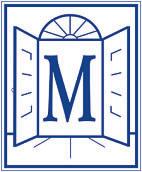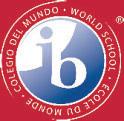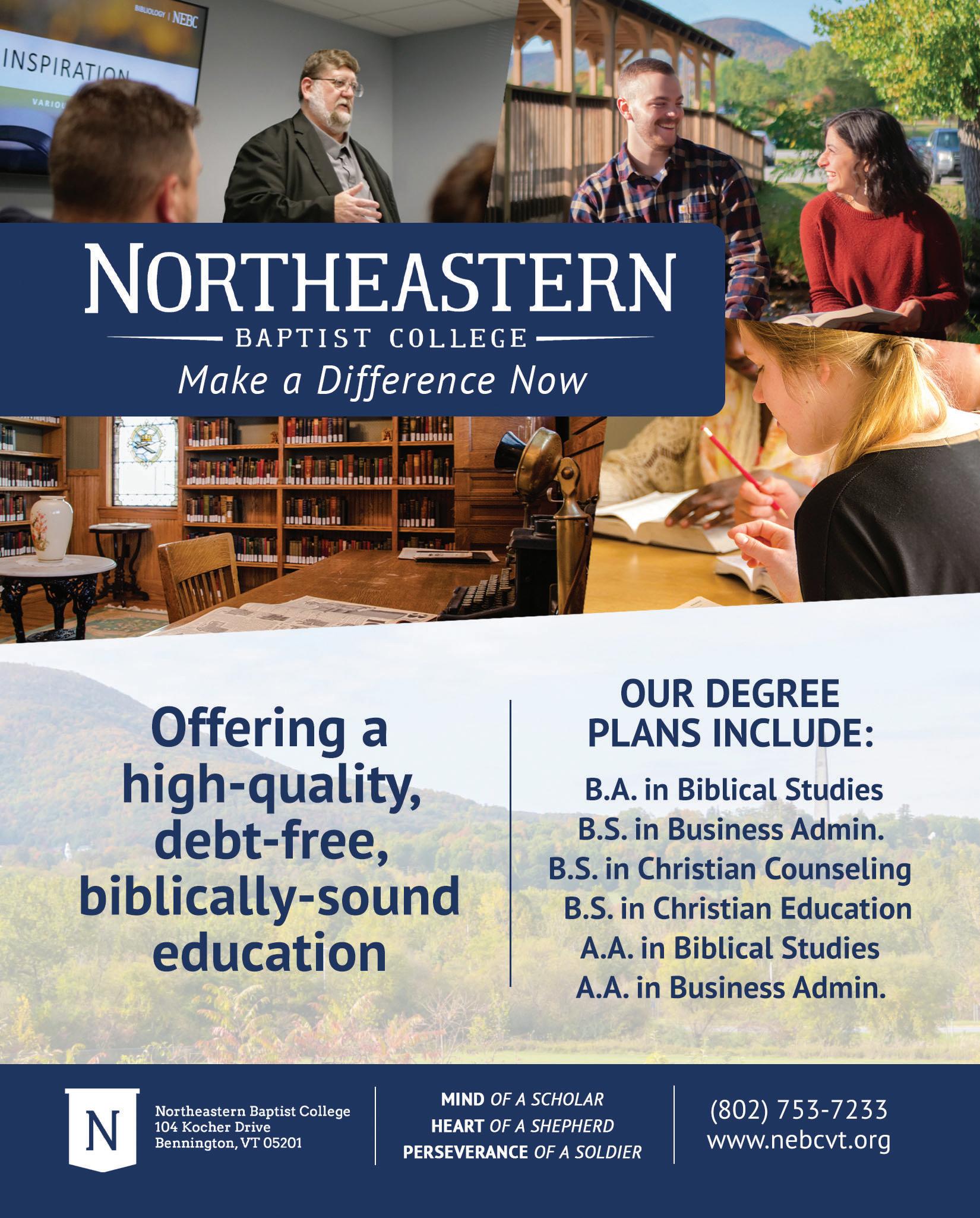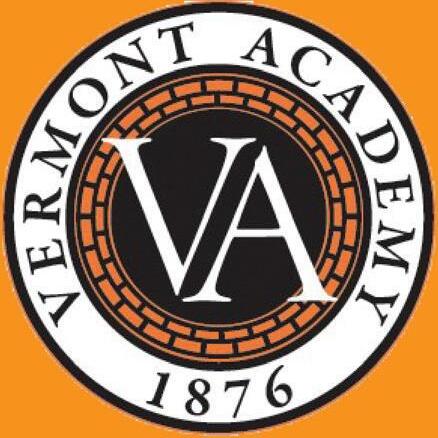A special publication of the Bennington Banner, Brattleboro Reformer and Manchester Journal
Saturday, February 25, 2023














A special publication of the Bennington Banner, Brattleboro Reformer and Manchester Journal
Saturday, February 25, 2023













When it comes to finding a job, of course it’s important to have the skills that fit the bill. But the region’s workforce experts say it’s even more important for prospective employees to demonstrate that they will show up on time, work hard and can stay motivated in the workplace.
“Companies are willing to train the right person, that is, someone who may not have the necessary industry-specific skills but who fits in with the company’s culture,” said MassHire Berkshire Career Center Executive Director Heather Boulger. “Employers want employees who are motivated, excited, and willing to work hard.”
Brattleboro Chamber of Commerce Executive Director Kate O’Connor echoed the necessity of job seekers having a strong set of the so-called soft skills.
“The biggest gripe employers share with me,” she said, “is that they hire people who then don’t show up for work. Employers are willing to train people who are consistent and show up.”
The MassHire Berkshire Career Center (masshireberkshire.com) based in Pittsfield, Mass., is a partnership between Berkshire Training & Employment Program and the MassHire Department of Career Services designed to provide quality programs and services to employers, job seekers and its community partners.
MassHire serves all 32 cities and towns in Berkshire County, and consults with the Berkshire Workforce Board. According to the MassHire website, the board is composed of knowledgeable, influential business and community leaders appointed by Pittsfield’s mayor on behalf of the 32 Berkshire County communities. The board has two specific roles: to serve as the oversight and policy-
making body for federally funded employment and training services in the region, and address critical labor market issues by developing strategic partnerships with local leaders in economic development, the K-12 and higher education system, government agencies, chambers of commerce, and community-based and labor organizations.
Based on her work with the board, Boulger said that young people in high school or college who seek to acquire the skills that will make them employable should participate in as many internships as possible.
“Internships expose young people to a variety of occupations that they may not have thought about,” she said. “Also, students should take STEM (science, technology, engineering, mathematics) courses, as those are the fastest growing careers.”

Another important attribute, Boulger said, is a commitment to lifelong learning.
“Always take a new course to expose yourself to new experiences,” she said. “Don’t be afraid to take a chance. Follow your passion. Work hard. Find a way to say yes to things and be prepared to fail. You will fail. It’s inevitable. It’s what you do with that failure that matters. Learn from your adversity and move on.”
In June 2019, the Brattleboro Development Credit Corporation (brattleborodevelopment.com) published a white paper online titled, “What is a ‘Good Job’? Defining Opportunity in Southern Vermont.” In it, Alex Beck, BDCC workforce and education program manager, writes that the “importance of and need for self-advocacy, self-reliance and grit as they relate directly to successful career outcomes, should be taught, practiced and reinforced. Armed with this knowledge, all students will feel empowered as they traverse the job exploration, application, and negotiation process.”
To address these needs, the BDCC in 2018 launched the Pipelines and Pathways Program (P3) initiative, a high school career awareness and preparedness program the goal of which is to improve post-graduation outcomes for all Windham County youth.
The program, according to a news release, assists in developing workforce-oriented curricula, expanding classroom relationships and growing work-based learning opportunities with local employers. It also supports teachers as they help students develop and implement their personalized learning plans, which are mandated by the state’s Flexible Pathways Initiative.
P3 coordinator Christy Betit works with the four high schools in Windham County.
By offering worksite tours to school personnel, she said, “We are hoping to bring greater awareness of career opportunities to guidance counselors
and other educators so that they can better guide students through coursework that prepares students for chosen careers.”
While specific occupations require specific skills, Betit said, everyone needs the foundational “soft skills.” These range from punctuality, attendance and organizational skills to conflict resolution, working on a team, taking initiative, creative problem-solving, and maintaining a positive outlook, among others.
“It’s important for people to understand that many employers will train people who have the capacity to show up and learn,” she added. “I will say, in addition to soft skills, preparing resumes and cover letters, and participating in mock interviews — all topics we’ve covered at many of our schools — are obviously all very important to being hired. We would like to see every student participate in resume and interview prep within the county.”
The Tutorial Center (TTC) is an Adult Education and Literacy (AEL) provider and one of four non-profit organizations statewide that provide free Adult Education and Literacy services. The mission of Adult Education and Literacy Network states that, “students are at the center of our work, and AEL providers offer a broad range of services that are specifically tailored to each student’s needs. Our services change people’s lives and build their asset bank, so that our students can pursue further education or careers that align with their passions and goals”. All Tutorial Center staff embrace this statement. TTC has been changing the lives of students for fifty-one years!
As The Tutorial Center (TTC) celebrates its legacy and prepares to move its Bennington site to a new building on Main Street, we
realize that we are an integral part of the community and that our services are more vital than ever. Post-pandemic numbers are increasing, and people are seeking a variety of services. Local schools and employers look to TTC to assist their students and employees with regaining credits, alternative educational approaches, and job readiness and advancement skills. Additionally, TTC has played a vital role in assisting the influx of New Americans in Bennington County.
Vermont Adult Education and Literacy providers are the official, state designated service providers for the High School Completion Program (HSCP) and the GED for Vermonters. These two pathways help people of all ages and backgrounds to obtain a high school credential at the speed and rigor that is suited for them”. The Adult Education and Literacy services are free to any Vermonter 16 and up. Having such a service in Bennington allows students, such as
Cullen, to achieve their goals.
“At the beginning of my senior year of high school, I was faced with a tough decision. I had to figure out how to support myself while living independently as well as graduate high school with a diploma. I could not go to school full time because I had to work. ...I realized that [TTC] could help me achieve my goal. I enrolled, and started going to classes two days a week. This new school week was much more conducive to my heavy work schedule. As if that weren’t enough, I had the flexibility to finish all of the classwork at my own pace. Eventually, I graduated with a diploma from the Tutorial Center after sixteen months. ...Had I not been presented with this opportunity, I would have had to take my GED which for me, was the less desirable option. The staff at the Tutorial Center were kind, welcoming, and helpful, and made my decision to finish high school a stress free and rewarding one.” Additional free services offered

TheVillageSchoolofNorthBenningtonisaVermontapproved Pre-Kthrough SixthGradecommunity-based,independentdayschool thatoffersachildcenteredlearningenvironmentwherestudentsarechallengedandnurtured.

by AELN providers include the following:



Literacy Education: Reading, Writing and Math, including computer and financial literacy education

English Language Learning and US Citizenship preparation
Career and College Readiness
As Vermonters struggle with reentering the post-pandemic workforce, TTC helps prepare Bennington County residents with the necessary skills to gain employment and be successful. According to Roger, a practicing nurse, “My journey in pursuing a nursing degree began at The Tutorial Center. The Bennington Bridge to College Program was one of the many TTC resources available and the program got me started on my college journey. The sooner you start pursuing your dreams, the sooner you will realize them. The Tutorial Center has a wealth of human resources, information, and support available for just about anyone who needs academic help.”
Childrenareatthe heartofallwedo. Wenurturea child'scuriosity, igniteenthusiasm forexploring, developtools forinquiry, forinvention, forachievement.
DiscoverwhytheVillageSchoolwasvoted BestK-12School in TheBennington Banner ReaderChoiceAwardsforthelastÞveyearsrunning!
Formoreinformation,visitwww.vsnb.organdcontactusat802-442-5955 orinfo@vsnb.orgtoscheduleavisit.Applyearlytosecureaspot!
TheVillageSchoolPre-KisrecognizedasaVermontSTARS4-STARprogramformeetinghigherqualitystandards.CertiÞedinstructorsteachclassroom lessons, andstudentsparticipateinthefullrangeofVillageSchoolenrichmentprograms,includingart,music,physicaleducation,gardenandnatureprograms.
ermontSTARS4-STARprogr
The flexibility and personalization of its services make TTC “the place to be me” for many students who would not flourish in another environment. Another Bennington County student, Keionna, shares how the nurturing atmosphere at TTC enabled her to achieve her goals.

“I couldn’t be any more grateful for what this program has done for me. This program brought light to the fact that every position in life
is vital. Whether it be a company CEO, bus driver, janitor, teacher, astronaut; in unity we make the world a remarkable place. ... I started schooling at The Tutorial Center at 16 years old, hopeless for a future I deemed unpleasurable and mediocre. Three and a half years later, I am now a woman accomplishing goals I didn’t think were possible. My out-of-the-ordinary daily life was accommodated because of The Tutorial Center’s
flexibility. This also enabled me to work more often granting me the money for my license, first car, and apartment. I also have time to properly take care of my brother. I was able to learn at my own pace on essentially my own time. I gained amazing genuine relationships that contributed to my success at school as well as other parts of the community. The Tutorial Center is an amazing school...especially for those whose lives don’t fit within
society’s typical margins. ...The Tutorial Center contributed to my success....and provided me with a very individualized, independent, education that allowed me to gain lifelong knowledge as well as early exposure to adulthood.”
Seeing students thrive is the ultimate accomplishment for TTC, and the center hopes to continue offering the services that not only help students thrive, but allow our community to thrive.


The COVID-19 pandemic had a profound impact on communities across the globe. No individual, household or industry was unaffected by the pandemic, and the ripple effects of the virus may be felt for years to come.
Though many effects of the pandemic have been devastating, one unforeseen and potentially positive consequence of the spread of COVID-19 was a growing recognition of the invaluable role played by local newspapers. Responses to the virus and strategies regarding how to combat it varied greatly, and local newspapers were a go-to resource for citizens who wanted to learn about rules and regulations in their towns. For example, in England the Bishop’s Stortford Independent, a local weekly paper in Hertfordshire, experienced a significant monthly web audience growth during the pandemic. Prior to the global outbreak in January 2020, the paper’s monthly web audience was 260,000. By October, that number had spiked to 360,000, reflecting a growing need for local news outlets as readers across the globe sought to learn about the pandemic within their own communities and how local officials were responding to the threat posed by COVID-19.
If the pandemic illustrated the vital role local newspapers can play, it’s important that readers recognize that role won’t be any less valuable when COVID-19 is in the world’s rearview mirror. Educators can help the next generation of readers recognize the importance of local newspapers by taking various steps to incorporate newspapers into their lessons.
Everyone was directly affected by the COVID-19 virus, making the story of the pandemic one of the most unique in modern history. Though children are often sheltered from global news stories about conflicts or economic crises, no such sheltering was possible during the pandemic, as kids were forced to learn from home and confront life with little or no access to extracurricular activities. Educators can show how local newspapers reported on the pandemic when teaching current events, using that example as the foundation for teaching current events in the future.
Students who do not speak English at home or as their primary language can benefit greatly from their local newspapers. It might be easy to learn how to say certain words in English, but reading them in a newspaper gives ESL students a chance to see the words they’ve learned in context. And because local newspapers feature sections on everything from news to sports to entertainment, ESL students are sure to find a few articles that appeal to their existing interests.
Just like ESL students are bound to find something that interests them in the local newspapers, their English-speaking classmates are sure to find a recap of their favorite team’s most recent game or a review of the
latest superhero movie or a local news story about their town to pique their interest. Students may not realize it, but they’re learning when reading such stories by developing their vocabularies, fine tuning their comprehension skills and catching up on current events.
The valuable role played by local newspapers was on display during the pandemic. That role won’t be any less valuable in a post-pandemic world, and it’s a lesson teachers can apply in their classrooms.









Despite efforts in the current legislature to again limit school choice for families living and paying taxes in school choice towns, there are families and taxpayers who see the benefit of true choice!
Following two recent Supreme Court rulings in Montana and Maine, the state of Vermont has moved away from excluding religious schools from public funding simply because of their religious affiliation. This is big news for families in school choice towns. Now they may enroll their child in a private religious school, such as Saint Michael Catholic School, and receive tuition assistance from their town as they would if enrolling at the nearest public or private high school. And the icing on the cake is the benefit to the
taxpayers. One school choice parent shares, “I feel good about sending our children to St. Michael’s Catholic School because it actually saves the state and our town money. The average cost for a high school student to attend a public school is between $16,000 up to $18,000 a year. By sending our two children to SMS we are saving them almost $20,000 a year.”
“There is no school quite like SMS in the area. They offer a strong faithful community, small class size and have a classical liberal arts curriculum. The sports program is excellent, and the students are well-behaved! The school’s community service reaches both the local and global community. No matter how far the drive … We highly recommend Saint Michael School.”
Aside from faith, there are many reasons a family might determine Saint Michael School as the ideal learning environment for their child. A more traditional curriculum, a family-centered experience where siblings can all be at the same school, and a virtuous or moral-centered culture are common reasons cited by families. “The school is very inclusive. I can tell my children have already formed lifelong friendships!” Currently, SMS has 6 students from the tuitioning towns of Wardsboro, Hartland, and Vernon. Those towns pay only half of what they would be paying to a local public school, as the SMS tuition is so low. The school is eager to talk with families looking for alternatives in education for their students.
DIDYOUKNOWTHAT...
SaintMichaelSchoolNowProudlyOffersaCatholic, ClassicalLiberalArtsHighSchoolCurriculum?





"Giveamanafishandhewilleatforaday.Teachamantofishandhewilleatforalifetime."
OurgoalatSaintMichaelSchoolistoteachyourchildrentolearnandhowtothinkcriticallyupongraduation,preparingthemfortheever-changing landscapeofthefuture.
Catholic -EverythingisinformedbytheteachingsoftheCatholicChurch
Classical -Acenturies-oldproventraditionofeducationthatemphasizesseekingthetruth,thebeautyandthegoodnessintheworldthrough thestudyoftimelessclassicalliteratureandhistoryfromsomeofthegreatestmindsinWesterncivilization.
LiberalArts- Afully-integratedcurriculumthatunitestheclassicalliberalartswiththephysicalsciences,mathematics,andphilosophy.
ISTUITIONCOSTACONCERN?
ITISOURHOPETOOFFERAPRIVATECATHOLICEDUCATIONTOANYONEWHODESIRESIT.WEWOULDLOVETOMEETWITHYOU ANDSEEIFWECANMAKEYOURDREAMINTOAREALITY.
CALL802.254.6320OREMAILLINDSAYO'NEILTOSCHEDULEAVISITATLINDSAYONEIL@SMSVT.INFO
WINOOSKI — For students who are applying to college this year, or who are looking for financial help for ongoing college study or for continuing education, it pays to research scholarship opportunities.
Every year, the Vermont Student Assistance Corporation (VSAC) compiles a scholarship booklet of Vermont-specific opportunities, available only to Vermont residents or to students who will work in Vermont after graduation. Here in our state’s “small pond,” many of those scholarships receive only 100 or so applicants – which means you may have a higher chance of winning a Vermont-specific scholarship than you might if you’re competing nationwide.
This year’s booklet includes information on 133 scholarships administered by VSAC, plus an additional 40 scholarships run by outside organizations.
Scholarships for many niches and needs
There are scholarship opportunities for a wide range of academic interests. Some of the more common fields include business, technical industries, environmental studies, public safety, health care and education. But there are also some very specific opportunities for interests like musical performance, ski area management and electrical line work.
There may be specific scholarships for residents of specific towns or counties, or graduates of certain high schools, or for children of parents who work in farming, retail, public safety or broadcasting. And several scholarships are offered only to members of traditionally disadvantaged groups, which includes first-generation students (students who are the first in their families to graduate from college).
Finally, single parents may want to check out the Bernice Murray Scholarship, which covers up to $4,000 in child-care expenses for single parents who continue their education.

Some scholarships offer one-time awards, while others are renewable, meaning the student can receive additional financial awards for each subsequent year of study. The annual
award amounts generally range from $500 to $6,500, though there are some exceptions, including several scholarships and forgivable loan programs for medical, nursing, and dental students, which generally cover the student’s full tuition.
New programs for this year
Those who have perused the scholarship booklet in prior years may want to take note of the eight VSAC-administered scholarship and loan programs that are brand-new for the 2023-2024 academic year.
Three new scholarships benefit students in particular communities:
The Robert E. Ashton, Jr. Memorial Scholarship honors a longtime St. Albans educator by offering $1,000 scholarships to graduates of BFA-St. Albans.
The Merle Clough Cutting Memorial Scholarship will offer one $1,000 award to a Newbury resident.
The Grand Isle County VFW Scholarship will assist up to four local students with $2,000 scholarships.
Four new scholarship and loan programs are targeted at students pursuing particular fields of study.
The Scott Campitelli Memorial Scholarship will offer one $2,000 scholarship to a student pursuing a degree in radio, TV, broadcasting, or film.
The VELCO STEM Studies Scholarship will award one $10,000 scholarship to a student from a traditionally underrepresented group who has received an associate’s degree from the Community College of Vermont and wants to pursue a bachelor’s in a STEM field.

A new interest-free and forgivable loan program will cover the full tuition for prospective early childhood educators, working towards an associate’s or a bachelor’s degree, who commit to teaching for one year in a Vermont child-care center.

A new interest-free and forgivable loan program will cover exam and first-time licensing fees for prospective tradespeople who commit to
working for one year in a high-demand trade or technical field.
And a new VSAC Board of Directors Scholarship in honor of Pamela Chisholm will award two $2,000 scholarships to first-generation students.
The application deadline is Feb. 15 for all VSAC-assisted scholarships, and all of those programs require a completed FAFSA and Unified Scholarship Application (USA), plus a general essay. The VSAC booklet covers any additional application requirements, such as recommendation letters or transcripts, for each individual scholarship. Deadlines and requirements for the non-VSAC scholarships vary.
Anyone with questions is encouraged to talk with the VSAC outreach counselor at their school, visit vsac. org, or call 800-642-3177.
www.hilltopmontessori.orgorcall802.257.0500
HilltopMontessoriSchool'smission isforstudentstopractice responsibleindependenceina caringcommunityofcurious,critical thinkersandthoughtfulcitizens.

TODDLER PRESCHOOL KINDERGARTEN ELEMENTARY MIDDLESCHOOL

AProgressivePrimaryandMiddleSchoolforstudentsage5-14
FoundedontheprinciplesofJohnDeweyandotherprogressivethinkers, TheHilandHallSchoolisastateapprovedindependentschoolwitha commitmenttomeaningfullearninginanatmosphereoftrustandrespect.
Formoreinformationcontactusat:802-442-3868office@hilandhallschool.org

2196HarwoodHillRd.,Bennington,VT www.hilandhallschool.org
TheHilandHallSchoolisanon-profitorganizationanddoesnotdiscriminateonthebasisofrace,color,religion,gender, genderexpression,age,nationalorigin,disability,maritalstatus,sexualorientation,ormilitarystatusinanyofitsactivities oroperations.


HilandHallSchoolisanon-profitorganizationanddoesnotdiscriminateonthebasisofrace,color, gender,nationalorigin,age,religion,disabilityorsexualorientation

BRANDPOINT (BPT) As we move into 2023, many students will choose which college they’ll attend in the fall. For parents, there are plenty of questions and concerns about the college process, especially when it comes to cost, scholarships and financial aid.












College Ave Student Loans recently completed a survey to get some insights into parents’ stress, concerns and priorities for affording their child’s college education. Read on to see six surprising findings from this study to help parents set their students up for future success.

Three-quarters of parents said college costs are more difficult to cover than in previous years and 71% found the actual cost of college surprisingly high. Also, parents often felt that college tuition, fees and room and board were more than they initially expected. Perhaps this is why one-third of parents said their child attended a school outside their original budget. Starting conversations with parents whose children are currently in college can help set expectations about affordability.

While 9 in 10 parents did fill out the FAFSA this year, a majority (61%) found the form confusing to

complete. To help cut through the confusion, have all your documentation ready, and talk to other parents who have recently completed theirs.
It’s free to apply for the FAFSA. Even if you think you won’t qualify, it’s worth filling it out. Your family may qualify for merit aid (money that does not need to be paid back), and at a minimum, federal student loans, which offer unique benefits, such as income-driven repayment plans, over private student loans.
There are several ways students and their parents can apply for scholarships, but they may not know about all their options. According to the survey, 30% of students received scholarships and grants as part of their school’s financial aid package.
Families have also found and received scholarships through the help of a college counselor or the financial aid office, an online scholarship search, a high school counselor, community or local organizations, friends and work. While these methods were used to a lesser extent, they do provide more ways to pay for college.
If you want to help your incoming first-year students search for scholarships, you can use online tools like Scholarships.com. College Ave also has several resources to help with the college selection process, including a college application checklist, instructions on how to apply for FAFSA and a monthly $1,000 scholarship sweepstakes.

When financial aid letters arrive in spring, many parents found the letters easy to compare. However, 74% of parents who received letters found that the expected family contribution to their children’s education was higher than expected.
It’s likely that because of this higher-than-expected contribution that families have to seek multiple ways to finance their student’s education, from income and savings to scholarships and student loans.
Before heading off to college, you should make sure they have the necessary life skills to live independently. According to the survey, parents confirmed that their students had accomplished several skills before college, such as cleaning, preparing meals and working a job. The most common was opening a checking and/or savings account (85%).
However, it seems that many students could practice other important financial skills. For example, only 48% had paid a bill, 26% had balanced a budget and 24% understood investments. For parents of soon-to-be college students, it’s critical that you help your children brush up on their financial skills before they start their classes in the fall.

Parents who have already sent their kids off to college have valuable insight into the process. They recommend parents of incoming freshmen encourage their children to apply for more scholarships, fill out a FAFSA application, and be prepared for unexpected college costs.
Even after a combination of savings, scholarships, grants and financial aid, students and their parents may find that they can’t cover the full cost of tuition. To bridge the gap, you may need to consider student loans.
Using tools like the College Ave student loan calculator, you can estimate your future monthly payment and an easy-to-understand breakdown of the loan amount, repayment terms and interest rates.
If you already have children in college and took out student loans, see how much you can save by refinancing a student loan using their student loan refinance calculator. To learn more about private student loans and other college finance tools, visit CollegeAve.com.
Over the last few years, the country has seen a growing loss of educators. According to job listings on School Spring, at the start of the fall 2022 academic year, there were more than 1,100 full-time teaching position vacancies within 50 miles of North Adams. Of the 1,100 positions, dozens include paraprofessional openings.
This year, MCLA and Berkshire Community College (BCC) are making strides to support educators to fulfill these opportunities.
Many times, in an attempt to close the gap, paraprofessionals, or teaching assistants, have assumed positions without proper training. Most paraprofessionals enter the field without teaching licensure yet fall into the responsibilities of a full-time teacher without proper training. To fill vacancies, MCLA and BCC created the “Associates to Bachelors” Pathway to Teacher Licensure program or P2T.
“We have worked with BCC over
the years to better align our programs for the needs of students,” said Nicholas Stroud Ph.D., Chair of the MCLA Education Department.
“Paras have a good sense of what it means to be a teacher. They have the background and expertise working with students that we really value. It’s not a career change. They’ve been doing a lot of the work, so it makes a lot of sense to support them.”
The program provides an efficient pathway to teacher licensure and is specifically designed for paraprofessionals currently employed by pre-K–12 schools in Berkshire County.
After working with superintendents and district leadership teams throughout the county, Barbara Kotelnicki, Associate Professor of Education at BCC, and Michelle Colvin, MS Ed.A., MCLA Director of Field Education polled the field about what is needed and how paraprofessionals can take the next step
to teaching licensure. With over 200 responses, roughly 30 percent were most interested in a pathway program to licensure.
To work as a paraprofessional an associate degree or two years of college is required. The responsibilities vary by the school district and collective bargaining agreements but largely revolve around supporting the academic, intellectual, and emotional well-being of students across a variety of educational settings.
“They’re being tasked with responsibilities beyond their job description. Part of it is COVID and part of it is that 21st-century needs have changed,” said Kotelnicki. “The job entails much more than it has in the past.”
Out of 81 survey respondents, 42 percent said that time is the great-


est barrier preventing them from pursuing career goals. Other reasons paraprofessionals don’t pursue teaching licensure are lack of finances, balancing jobs and families, and test anxiety around the Massachusetts Tests for Educator Licensure (MTEL).
“Money, testing, and life circumstances are the biggest issues,” Colvin said. “In our information sessions, we’ve heard people say, “I’ve always wanted to do this, but I don’t know where to start.”
Jesse McMillan is a principal at New Hingham Elementary School in Chesterfield, Mass., and graduated with a master’s degree in education from MCLA in 2017. He was raised in a family of educators, taught English in Springfield and Pittsfield Public Schools, and was the speaker for the 2022 MCLA Convocation.
Various headlines publicize the decline in educators. McMillan worries that the “national narrative of all educators being overworked,

underpaid, and underappreciated is generalized and applied to the entire field,” and could deter students from pursuing a career in education, however, the complications vary by district.
“There are also a significant number of districts that are a wonderful place to work where educators are respected and valued, earn a respectable salary, and have the resources to support their classroom,” he said. “I would highly encourage those who want to enter the field to conduct thorough research on job opportunities and find the school and district that will be the right fit; they’re out there.”
While the MTEL is one reason some may not obtain their teaching licensure, a new option has been created for eligible teacher candidates to take the next step.
Changes were made this year and those who did not pass on or after Oct. 20, 2022 are eligible for the MTEL-Flex exam – a flexible testing option for candidates and for those whose score was very close
to the passing score. It allows for a written submission to demonstrate subject matter knowledge as well. Candidates who meet the eligibility requirements can submit an MTELFlex assessment rather than retaking the full MTEL test. For MTELFlex, candidates provide an analysis of an MTEL test objective to demonstrate the depth of their subject matter knowledge. Candidates who pass MTEL-Flex will meet the subject matter test requirement for their license.
“Depending on your score you can take a different option which is more of a narrative research-based project-building assessment in relation to the test,” Colvin said.
MTEL prep courses are offered to MCLA education students and Colvin said students are relieved when they hear they have support.
Support is the main focus of the Associates to Bachelors Pathway Program. It incorporates a cohort style of teaching that allows students to go through the program together.
“The students build a sense of community over time,” Stroud said. “They have a built-in group of peers who know what they’re going through and work through things
together as they move through the program.”
In a testimonial video about the Early Childhood Education Cohort Experience at BCC, students talk about the support and growth they experienced by learning together throughout the program.
“I think I’ve grown a lot with the help of others in the class and the moral support that we give each other. It’s very nice to be able to look at someone to say, “I’m confused. Are you confused?” knowing that we all are in the same place and feeling the same way is definitely a calming factor,” said Tina Marie Carpenter, a student in the ECE cohort program.
Another student, Samantha Rodriguez, emphasized that she was motivated by her family to finish the program.
“As it went on, I’m like, I want to graduate. I want to walk across that stage... I want to better my life for my daughter and myself, and my future family,” she said.
“Cohorts are beneficial because they’re the same people who are growing, learning, and thriving in one group. They become this family and don’t let each other fail. They create this relationship that continues past whatever degrees or in-
terest they’re pursuing,” Kotelnicki said.
The Pathway to Teacher Licensure program was designed with paras at the core. It allows paraprofessionals to earn an associate’s degree at BCC and continue to MCLA to earn a bachelor’s degree and teaching license. Students follow an Early Childhood Education or Elementary/Secondary Education pathway; eligible students may also apply for credit for prior learning after enrolling at MCLA
“We made it flexible for someone with no college, some college, or those who already have a BA, to find their pathway to teacher licensure,” Colvin said. “We want to be able to meet individuals where they are and find the most effective and efficient path forward. We intentionally did it to be prescriptive and flexible for folks on their path.”
Classes for the P2T program are now being offered through the summer of 2025. A full schedule can be found on the BCC website and those interested in pursuing the program can email Barbara Kotelnicki (bkotelnicki@berkshirecc.edu.) or Michelle Colvin (michelle.colvin@ mcla.edu) via email.

“Ididn’treallyknow whatIwascapableof... Itwasalotmore thanIthought.”
 BY CHRIS MAYS Brattleboro Reformer
BY CHRIS MAYS Brattleboro Reformer



TOWNSHEND — Leland & Gray Union
Middle and High School received glowing praise from the state’s top education official during a visit on February 6, 2023.
Vermont Secretary of Education Dan French called Leland & Gray “historically one of the more innovative schools in the state.”


“It’s really great to see your project-based learning work going on this morning,” he told students during an assembly. “I wish I could have had that kind of program when I was in school.”
French thanked teachers for their hard work and Principal Bob Thibault’s leadership over the years. Windham Central Supervisory Union recently announced Thibault would be its next superintendent.
“He was instrumental with our work in the state planning for COVID recovery during the pandemic itself,” French said of Thibault, who served on a task force.
French commended the maintenance staff. He described the building as “exceptionally clean, well maintained.”

“Really nice to see,” he said. He also touted the upgrades to air systems, large-scale improvements which caused the school to stay closed longer than others during the pandemic.
French heard about how students are participating in Rescue Inc.’s newly created Vermont EMS Academy, winter activities and a Town Meeting every month where input has been sought on food, building improvements and issues such as vaping and inappropriate use of bathroom. He said it’s good to put an emphasis on civic engagement.
Journey Away, a reboot of the Journey East program that provided opportunities for students to travel to China, is another highlight at the school. Thibault said the change is to ensure the program is sustainable after China was closed to visitors during the pandemic.
This year, students in Journey

Away will be studying climate disaster. They have a trip booked to New York City and New Orleans. A ropes course and updates to the weight training room also were shown off. Superintendent Bill Anton said the investments are another avenue for promoting student engagement.
French visits local schools to inform his work. He told the Reformer he gets to look at the “dynamics of ecosystems.”
At Leland & Gray, he said it’s “really interesting” to see how the school is focusing even more on project-based learning post-COVID. Coming out of the pandemic, he’s emphasizing the need for re-engagement and socioemotional health, believing such efforts will help with addressing academic learning loss. French, who lives in Manchester, served as superintendent of Bennington Rutland Supervisory Union from 2007 to 2016.
 BY CHRIS MAYS Brattleboro Reformer
BY CHRIS MAYS Brattleboro Reformer
WILMINGTON — Windham Southwest Supervisory Union is moving forward with a five-year strategic plan based on school community feedback.

“The plan was generated through a rich, facilitated process that looked at our strengths, opportunities and threats,” Superintendent Barbara Anne Komons-Montroll said in an interview.
The project started in December 2021 and a final presentation was delivered in June 2022. Implementation is underway, with community partnerships being actively sought.
Komons-Montroll, who is in her fifth year as superintendent, now feels like the supervisory union is on more solid footing.
“We’re clear on where we’re going and it’s a direction that has been directed by all of us, not just a small group,” she said. “But truly, it reflects what we believe, our values and what we believe our children need in order to achieve in a changing world.”
Strategic Plan for Student Success 2022-2027: Trailblazers in a Changing World includes clearly outlined goals and strategies to achieve them, Komons-Montroll said. The document can be found at wswsu49. org/strategic-plan.
The plan identifies four priority areas: social emotional learning, mental health and well-being; student engagement; academic achievement and success; and sustainability. Each area has multiple goals and very specific strategies to achieve desired outcomes, Komons-Montroll said.
For example, she pointed to a strategy for sustainability that involves establishing procedures and a process for conducting exit interviews. That’s already happening within the supervisory union, she said of the organization, which provides services to public schools in Halifax, Readsboro, Stamford, Whitingham and Wilmington, and students in Searsburg.
Another strategy in the same priority area is to establish a group focused on diversity, equity and inclusion to oversee implementation of the plan. Komons-Montroll said the Justice, Equity, Diversity and In-
clusion (JEDI) Team had its second meeting last week “and that’s going to continue.”
Work on community engagement in ongoing. For instance, Twin Valley Middle High School hosted an open house last week in which students provided building tours to the community.
Komons-Montroll said she’s going on “road shows” to meet with different community groups, bringing along another administrator and a member of a school board, to discuss the plan and shared vision of the supervisory union. The hope is to get local groups engaged in the process so they can identify ways they can partner up to support the process.
School officials believe “it takes a community to really succeed in meeting such bold goals that we have,” Komons-Montroll said. School board members have provided suggestions for community groups to approach.

Altogether, Komons-Montroll counted about 50-plus stakeholders who have been involved in the project to date. She described it as “probably the broadest of any process we’ve done.”
Participants initially came up with a vision for skills they believe every child across the supervisory union should have, Komons-Montroll said. Six critical proficiencies were identified: adaptability, communication, collaboration, critical thinking, empathy and responsibility.
“We believe that with these skills,” Komons-Montroll said, “the students will succeed in a world that’s changing rapidly, in a world that’s not the same as with what we may have had grown up with.”
Inspiration also involved looking at previous improvement plans.
Having students join the process was “very rich,” Komons-Montroll, calling it “a thread throughout this plan” along with equity and inclusion. Students also are involved with the JEDI team.
Regarding future planning, Komons-Montroll said, “I’m sure our whole process and reflection and data gathering will inform that.”
“I’m excited by the potential of what we’re going to be able to do in partnership with our community in providing equitable access to education for all of our students,” she said.
Members of the Twin Valley Middle High School Youth Adult Partnership Program gather at the school’s library to look at some survey data from last year that they want to update. Student engagement is a focus of the Windham Southwest Supervisory Union’s new strategic plan.

MONTPELIER — A Vermont foundation is working with the state community college system to provide a free, two-year college degree over the next five years.
The J. Warren & Lois McClure Foundation announced the “Free Degree Promise through the Early College Program at CCV” for Vermont students in the high school classes of 2022-2026.

In addition to providing tuition and fees after any federal and state financial aid, the foundation will provide career and education counseling and stipends to help pay for books, transportation and other college costs.

The McClure foundation’s plan builds upon the Community College of Vermont’s Early College program that allows high school seniors to complete their last year of high school and first year of college at the same time.
“Young people deserve a degree they can count on and afford,” McClure Foundation President Barbara Benedict said in a statement. “By guaranteeing this pathway through Early College to a free degree at CCV, we are telling Vermont’s young people we believe in them and we believe in their futures.”

Vermont officials have been working for years to help alleviate what has become an acute labor shortage caused by declines in the number of working age adults and the lack of trained workers.
There are programs in other states to help pay for community college. In Maine, the state budget passed ear-
lier this month included $20 million to fund two years of free community college for eligible graduating high school students between 2020 and 2023. Currently about 150 seniors from about 50 high schools in the state participate in the Community College of Vermont’s Early College program, said CCV spokeswoman Katie Keszey. McClure Foundation Executive Director Carolyn Weir said they don’t know how many Vermont students will take advantage of their offer to help students earn associate degrees.
“We’re committed to covering costs no matter how many students enroll,” Weir said in an email. “If a lot of students enroll, and we can point to an improvement in the number of young people in Vermont from low-income and historically marginalized backgrounds benefiting from college and career training, we’ll consider that a success — for enrolled students and for Vermont.”
The McClure Foundation focuses its efforts on equitable access to postsecondary and career education. The foundation says that since 2008 it has awarded more than $5 million to help Vermonters prepare “for secure and successful employment.”
“Early College in and of itself can be really beneficial, and taking that a step further and allowing people to finish a degree would be really, really helpful for some people,” OJ Daring, who is participating in the Early Program at CCV’s Winooski, said in a statement announcing the program. “To get those two years, and not be in debt, and get farther … it opens a lot of doors and opportunities if (students) are able to get an associate degree.”


The Club has undergone big changes to meet the needs of children, youth, and families. In May of 2020, they reimagined and refreshed the space with new paint, carpeting, and furnishings that best support their afterschool programs. Even when schools were remote, the Club served kids in-person.

The most notable change in operations is their collaboration with Retreat Farm. During COVID, they rehomed their K-5 Kids Club Afterschool program from Flat St to the Retreat Farm, creating an outdoor program that enhances kids’ well-being, gives them fun opportunities to learn outdoor skills, building social connections, character and resilience. Through activities and imaginative play on the farm and in the forest, participants
enjoy nature, animals, and friends. This program, now moving into its fourth year, has been nationally recognized by the Children & Nature Network.

This change in locale for the youngest members allowed the Club to reimagine their Flat Street location to serve youth with engaging enrichment programming. By providing transportation from school the Club allows kids to access quality afterschool activities and accommodates working families’ busy schedules. During the summer The Club offers full day camp for grades K-5 and half day workshops for teens.
Members access The Club’s daily academic support session, “Power Hour” and programs like Snack Prep with the Brattleboro Food Coop, Art classes with
River Gallery, Parkour with NECCA, and Improv with NEYT all at the Club’s downtown location.
One popular offering is the “Make your Own Skateboard” program where Club members make a skateboard at woodworking shop, Hatchspace, and then test it out in the Club’s indoor skatepark. This hands-on opportunity allows youth to gain new skills and engage in the design process.
Thanks to a grant from Vermont Afterschool, membership is accessible to all. The Club is a fun place to meet friends, hang out, and enjoy the basketball court, performance area, tech lab, rock climbing wall, ping-pong, air hockey, foosball, and a pool table. It’s a perfect place to engage youth.
WEST BRATTLEBORO — A few puppets stopped by Academy School to teach students how to more smoothly process anxiety.

“I got this!” kindergartners and first graders shouted in unison during the show.
They also collectively said they feel “empowered” by tools meant to push away worry, promote kindness and identify adults they can trust to confide in if needed.
On Thursday, students at Academy School were treated to social emotional learning workshops or puppet shows presented by Vermont Family Network. The programs catered to different groupings of grade levels.
“Our bodies and brains have a builtin alarm system that tells us when there is a problem,” states an information sheet from Vermont Family Network. “Sometimes our alarm system goes off too often or when it is not necessary. When we feel stressed, we may be unkind to others, or others may be unkind to us.”
The group suggested worry can be managed by standing up to it, calm breathing, talking to an adult, moving your body or staying busy with puzzles, games or other work.
The mission of Vermont Family
Network is “to empower and support all Vermont children, youth, and families, especially those with disabilities or special health needs.”
Kate Williams, master puppeteer with the group, said tips have been
shared with students in performances in Vermont, upstate New York and Massachusetts. Programming is available via in-person and virtual formats.
Karen Sharpwolf, master puppeteer with the group, said the show performed at Academy School had been developed before the COVID-19 pandemic and became “very important” to offer to schools afterwards.
Teachers in general have been reporting that students are acting out and have requested the group combine the subject matters of kindness and anxiety in its programming.

“Kids are just under so much distress from the pandemic,” said Sarah Vogelsang-Card, master puppeteer with the group.
Anxiety is personified by an octopus in the puppet show. Two characters, Natalie and Adam, discuss different issues, then students are surveyed about their own feelings or experiences.
Vogelsang-Card estimated Vermont Family Network reaches about 7,000 to 10,000 children a year. She said the group complements what schools are already doing and also offers programming on sexual abuse.
community,whereasupportivenetworkoffacultyandpeersacceptyouasyou areandseeyouforwhoyoucanbe.Feelempowered,breaknewground. We’vegotyou.
Findyourpeople,findyourself-hereatFranklinPierce.
We’ve long known that the most promising jobs in Vermont require education and training beyond high school. Yet too often, Vermonters seeking that education and workforce training cannot afford it. Cost is the primary barrier to postsecondary continuation, and we have one of the country’s lowest college-going rates to show for it. Consequently, we also have a workforce in crisis.
One silver lining of the pandemic is that Vermont has come together to make historic investments in college and workforce training affordability. Last year, with generous support from legislators and the governor, Vermont Student Assistance Corp. announced the 802 Opportunity Grant: free tuition at the Community College of Vermont for Vermonters with a family income of $50,000 or less. In 2022, legislators increased the household income threshold to $75,000.
Thousands of Vermonters have taken VSAC up on its offer. Among them:
A social worker pursuing a career in mental health who depends on 802 Opportunity to stay out of debt.

A funeral director, new to the profession, who had been laid off during the pandemic, for whom 802 Opportunity was “a huge weight off my shoulders.”
A behavioral therapist for children with autism says that 802 Opportunity allows her to access education while working full-time.
The power of this program is its inclusivity. Vermonters of all ages and backgrounds stand to benefit, including working adults, single parents, recent high school graduates, veterans, new Americans, educators, healthcare workers, and entrepreneurs. Fully half of Vermont households are eligible.
In the 2021-2022 academic year, more than 2,000 Vermonters enrolled using 802 Opportunity — close to 50 percent of CCV’s degree-seeking students. Vermonters from all 14 counties attended all 12 of CCV’s academic centers. Students were 17 to 74 years old, with an average age of 30. Three-quarters or a staggering 1,500 students were the first in their families to go to college. We’re learning a key lesson: when we remove the barrier of cost, Vermonters enroll.



Employers need workers with increasingly sophisticated skills, and CCV provides those skills. According to the latest report from the J.

Warren and Lois McClure Foundation and the Vermont Department of Labor, the high-pay, high-demand jobs with at least 500 openings this decade include jobs in health care, education, and business — the bread and butter of CCV programs. More than 250 of the 802 Opportunity recipients have already completed a certificate or degree, and most are in the fields of health care, child care, and business.
We know that education is the greatest equalizer when it comes to economic opportunity—and as a rising tide lifts all boats, this is true for individuals and for whole communities. When Governor Scott and the legislature prioritized funding for higher education, they made a gift to individual Vermonters and to our collective economic well-being.
When we continue this positive trajectory by prioritizing and making permanent the state’s funding for 802 Opportunity in 2023, Vermont will serve as a powerful example to the nation of a state invested in its future. By expanding access to education and workforce training, we are building the foundation for a more resilient, more equitable, more vibrant Vermont.



(BPT) — Reading, writing, science and math are subjects that have been associated with classroom instruction since school was established. And all are relevant, important subjects to master in order to succeed in society. But according to a new survey of 2,000 parent respondents conducted by OnePoll on behalf of Kiddie Academy Educational Child Care, these subjects are not the only skills parents are looking
to have their children learn in early childhood education.

An astounding 81% of parent respondents believe educators should spend time teaching things outside academics like soft skills and current events, with 60% wanting current events instruction to focus on cultural happenings like festivals and heritage celebrations.
This survey makes it clear that par-
ents of today are focused on developing their children into well-rounded members of society beyond just traditional school subjects.


Sixty-two percent of parents in the survey responded that they prioritize their children learning soft skills like communication, critical thinking and problem solving before they’re 8 years old, with 40% of parents saying that practical life skills are the most important thing for their children to learn at a young age. The majority of parent respondents said that core curriculum classes should not begin until the first grade.

“Parents who place their children in a preschool environment that focuses on character development give children a strong start,” said Joy Turner, vice president of education for the Kiddie Academy brand. “Learning the ability to care about others, to communicate, and to understand how character affects the communities and world in which we live is important to early childhood education development.”
The majority of parents who took
the survey think that social and emotional development are absolutely necessary to learn at their child’s school, with honesty ranked as the most important character trait to learn in early childhood. Therefore, parents are leaning on child care providers to bridge the gap between what parents are teaching at home and what children are learning in the classroom.
So how can parents find child care that aligns with these priorities? By asking thorough questions when touring a facility, researching social media and websites affiliated with their early childhood education options and paying close attention to the interactions they have with a provider during a tour or interview.
“Parents have many choices to make when it comes to sending their children to an early learning program,” said Turner. “Making sure you’re on the same page with the facility where your children spend so much time is key to developing them into the people we hope they become.”








